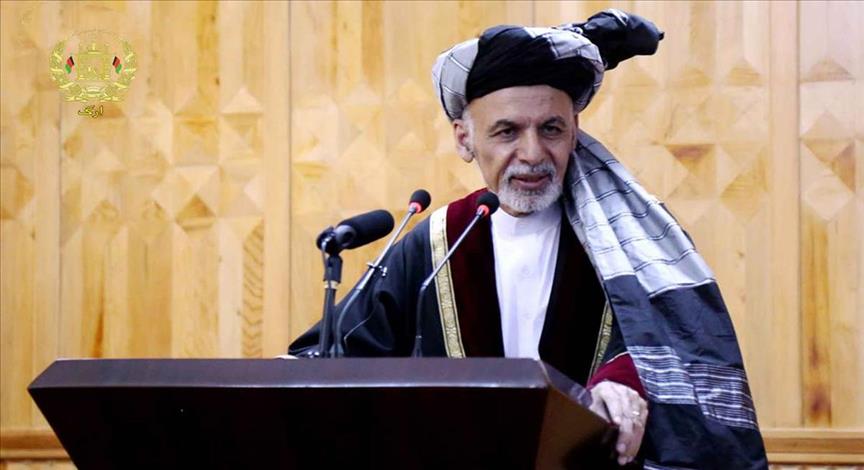
By Shadi Khan Saif
KABUL
After their president accused Pakistan of harboring the Taliban in the wake of a string of attacks in their capital Kabul, Afghans have launched a boycott of Pakistani goods.
Social media users have posted videos and comments denouncing Pakistani goods and showing them being thrown away since President Ashraf Ghani (in picture) slammed Pakistan on Monday.
Afghans have long accused Pakistan of supporting the Taliban's attacks and many were more strident in their anger despite landlocked Afghanistan relying on its eastern neighbor -- alongside Iran, India and Central Asia countries -- for goods and services.
One video that has gone viral in Afghanistan showed a woman emptying Pakistani drinks into the sink.
“I used to regularly drink [popular Pakistani drink] Ruh Afza and my kids love it as well but it will no longer be in my kitchen, neither will the Pakistani spices,” she says, as she calls on viewers to join her in boycotting Pakistani goods.
Another video shows an Afghan living abroad lamenting the use of Pakistani currency in some provinces on the shared border.
“Open your eyes and see what they are doing to you and your country and what you are doing in return by using their products and using their currency,” the man says. “This is a historic disgrace for you all.”
Another video showed a doctor vowing not to prescribe Pakistani medicine.
Khan Jan Alakozay, Vice President of the Afghanistan Chamber of Commerce and Industries, supported the move to boycott Pakistani products but warned against it being merely sentimental.
“People have the right to express their sentiments through peaceful means but there should be an alternate in place to ensure price stability and availability of necessary items,” he told Anadolu Agency.
“For instance, during the Najibullah Ahmadzai government [1987-1992], Afghanistan officially boycotted Pakistani products but there were alternatives in place as the Kabul government signed treaties with other regional countries,” he said, adding that the current Afghan government should put in place long-term measures for self-reliance.
According to Alakozay's organization's figures, Afghanistan meets at least 80 percent of its import needs from Pakistan, in trade worth more than $3 billion a year. Food items, construction material, medicine and chemicals top the list.
The bulk of Afghanistan's daily need for 10,000 tons of wheat comes from Pakistan.
Before the latest string of attacks in Kabul, both Pakistan and Afghanistan had apparently recovered from the strained ties under previous Afghan President Hamid Karzai, who was more openly critical of Pakistan than Ghani.
Attempts to build up their relationship had seen them sign an agreement to boost trade to $5 billion per year but the new boycott could hamper that if it develops further.
Bubrak Yousufzai, a boycott leader, said it gave ordinary Afghans a chance to express their anger against Pakistan. He added that youth in particular were furious over the latest spate of bombings in Kabul.
“The Afghan people have run out of patience, they have long been demanding President Ghani to denounce Pakistan and to associate no hopes for peace with Pakistan,” he said.
Anadolu Agency website contains only a portion of the news stories offered to subscribers in the AA News Broadcasting System (HAS), and in summarized form. Please contact us for subscription options.

